- Definitions
- How to secure yourself?
- Comparative study

Simran has over 3 years of experience in content marketing, insurance, and healthcare sectors. Her motto to make health and term insurance simple for our readers has proven to make insurance lingos simple and easy to understand by our readers.
Reviewed By:

A boy-in-squares bagging escapades of switching streets in groove & sensing musical airy-notes from 6 1". Under wayed nyctophile sketching the walls of life from the panorama of anime.
Updated on Mar 22, 2024 6 min read




Terminal Illness vs Critical Illness in Health Insurance
A human life is a journey along a curved road with so many twists and turns that can take us to several unexpected destinations. While moving along this road, we encounter multiple signposts, each signifies a unique phase of life. Right?
Now Imagine, encountering two distinct signposts that mark pivotal moments of our life; one says “terminal illness” and the other says “critical illness.” Both these paths come up with their odds, you need to be prepared for both at a period.
In our lives, these conditions can drain our whole lifetime savings and motivation. Let us understand terminal illness vs. critical illness thoroughly and how you should protect yourself.
Terminal Illness vs Critical Illness- What are these?
Terminal illness refers to a condition in which life expectancy is limited to a short period, such as organ failure, advanced-stage cancer, etc.
Meanwhile, critical illness refers to severe health conditions that are debilitating, such as heart attack, stroke, major surgeries, etc. Critical Illness often requires extensive medical care and treatment. Unlike terminal illness, critical illness does not lead to imminent death but can impact the quality of life.
How to protect yourself?
Only a better lifestyle can protect you from these illnesses. Also, you can get insured with terminal illness coverage and critical illness cover. Choosing better health insurance can give an abundance of benefits to you and your loved ones. You can even do that by analyzing your family history. If someone in your blood line has some critical illness, then you should go for critical illness cover and if there is someone with major health issues like cancer, then you should go for terminal illness insurance. Read below to get more understanding of terminal illness vs. critical illness insurance.
Terminal Illness Insurance vs Critical Illness Insurance
| Base | Critical Illness Insurance | Terminal Illness Insurance |
|---|---|---|
| Coverage | Covers major illnesses that can be cured in the long run such as heart attack, stroke, cancer, organ transplant, kidney failure, and certain types of paralysis. Insured can use them for covering medical costs, modifying the living space for accessibility, or even taking time off work to focus on health. | Allows access to a portion of life insurance benefits if a person is diagnosed with a terminal illness and has a life expectancy of typically six or twelve months. Provides financial support during the final months, and helps to cover medical expenses, hospital care, and other end-of-life costs. |
| Claim Availability | If diagnosed with any critical illness, irrespective of life expectancy the insured can claim the refund without being hospitalized. | If diagnosed with any terminal illness, and the life expectancy is 12 months, the insured can claim the benefits. |
| Sum Amount Assured | The insured can avail of a one-time lump sum amount when it is required. | The insured receives up to 25% of the sum assured amount and the remaining amount will be paid as a one-time lump sum benefit to the nominee after the demise of the insured. |
| Benefit | The insured will get financial benefits when there is the highest need and it can be utilized as per the requirements. | The family members will avail the benefits after the demise of the policyholder. If the case is below 12 months life expectancy, the insured will get 25% of the sum assured for medical treatment. |
Why is Terminal Illness cover and Critical Illness cover important?
Terminal illness cover and critical illness cover are the two very important types of health insurance as they provide financial protection as well as support during crucial times of life.
Read below to get know about the importance of the coverage:
Comprehensive coverage
Having terminal illness cover and critical illness cover protects you against any unexpected medical health scenarios in life.Financial Security
Both insurances provide general medical financial security for your unexpected medical expenses. Critical illness provides a lump sum payment upon the diagnosis of the covered illness. Meanwhile, terminal illness provides financial support during the final stages of life due to any terminal illness, where life expectancy is below 12 months.Flexibility in care
Having both the coverage or any one of them; terminal illness cover and critical illness cover, can give more flexibility in choosing the treatments and medical care options, including early-stage treatments, alternative therapies, and end-of-life care.Income Replacement and Debt Management
If the medical illness prevents the insured from working, the insurance payout from the critical illness insurance cover can replace lost income, while the terminal illness cover allows you to manage debts and all the expenses during the final stage of life.Peace of mind
Critical illness cover and terminal illness insurance cover can provide you a subtle peace of mind by ensuring financial safety is in place for any kind of tragedy.Quality of life enhancement
You can positively improve your accommodation by making necessary modifications according to your health condition for better accessibility with the help of insurance coverage.Family Support
Both insurances help to cover the cost of professional caretaker and medical support. With this support, the family members will be able to focus on providing emotional support rather than being overburdened by financial burdens.End-of-life planning
The terminal illness cover can help in covering end-of-life planning such as funeral and burial expenses.Customizable policies
Many times, the insurance providers offer some customizable policies, which allow you to tailor the coverage of your specific need, medical need, and financial situation.Financial Stability
The insurance coverage can help maintain the stability of the family in case of the demise of the policyholder. This helps them to focus on supporting each other without any added stress or financial worries.
Who should opt for Terminal Illness Cover?
Opting for terminal illness coverage can be a wise decision for individuals-
Who has dependents
If you have anyone in your family who is dependent on you financially, the terminal illness cover can provide a secure future for them.Who doesn’t have any adequate savings
If you do not have surplus savings or any insurance, this cover can help with medical expenditure, end-of-life care, and other costs related to the same.Who has a lot of debt
Terminal illness cover can be useful if you have outstanding debt, like, loans, mortgages, or credit cards. The cover can reduce the stress for your family by repaying all the debts,Who wants to plan their estate
It ensures that your assets should be disturbed according to your wishes and this way you can secure your family’s future.Who has high medical bills
Terminal illness insurance can help to cover treatment costs if it is higher than expected.Who wants to relieve financial stress
Terminal illness can be emotionally and mentally damaging, but terminal illness coverage can give you peace of mind so that you can spend your time with your family.
Who should opt for Critical Illness Cover?
Opting for critical illness coverage can be a wise decision for individuals-
Who does not have any robust health insurance
If your health insurance does not cover all the costs that are associated with the critical illness. A critical illness cover can provide financial support if you were diagnosed with any one of those unlisted conditions.Who has a family history of critical illness
If you have anyone in the family, who is suffering from any critical illness or passed away due to one of these conditions, should definitely opt for the critical illness cover.Who is the primary earner
If you are the sole bread earner of your family, then you should opt for critical illness coverage. It will make sure to meet the needs if you are not able to continue the work.Who works as a high-risk professional
Some professions expose individuals to a higher risk of developing critical illnesses such as stress-related issues with the corporation, respiratory conditions for the miners, and much more. Critical illness insurance covers can help these individuals with their medical bills.Who wants to safeguard their Retirement
Critical illness cover can be integrated into the retirement planning to safeguard financial stability.Who are the caregivers
If you are a caretaker who provides support to family members, having critical illness coverage can make sure that you have the financial means to continue the responsibilities.
Conclusion
Nowadays, health uncertainties can impact our lives at any moment. To deal with this, both terminal illness coverage and critical illness coverage play a crucial role in safeguarding our financial health.
They make an individual strong enough to face life challenges with confidence and allow them to focus on recovery, family well-being, and quality of life.
Though we cannot predict the future, the right insurance cover ensures that we should be prepared for the twists and turns that life may bring and you will be able to safeguard your family like a pro.
Consult for Personalized Insurance Advice

But how does it work?
Schedule a call with India’s number 1 trusted advisor with a 4.5+ rating on Google. We are not your average insurance agents. Our advisors are experts in their insurance knowledge and will give you the right information at the right time. The service is free of cost! Don’t worry, we won’t spam as we value your time.
Health Insurer Network Hospitals
Terminal Illness vs Critical Illness in Health Insurance: FAQs
1. Is cancer a terminal or critical illness?
Cancer is a critical illness if it is detected at an earlier stage.
2. What are the three examples of terminal illness?
Advanced-stage cancer, Alzheimer& 039;s, and motor neuron disease are some of the examples of terminal illness.
3. Does critical illness cover terminal illness?
No, there is a difference between critical illness and terminal illness.
4. Is heart failure a terminal illness?
Heart failure is a serious long-term condition that will usually continue to get worse slowly. So, heart disease can be a terminal illness if there is no expectation of living.
5. Can you live 20 years after diagnosis of heart failure?
Yes, in some cases you can live more years.
Health Insurance Companies
Know More About Health Insurance Companies
Share your Valuable Feedback
4.4
Rated by 2629 customers
Was the Information Helpful?
Select Your Rating
We would like to hear from you
Let us know about your experience or any feedback that might help us serve you better in future.


Written By: Simran Saxena
Simran has over 3 years of experience in content marketing, insurance, and healthcare sectors. Her motto to make health and term insurance simple for our readers has proven to make insurance lingos simple and easy to understand by our readers.






 Reviewed By: Anchita Bhattacharyya
Reviewed By: Anchita Bhattacharyya



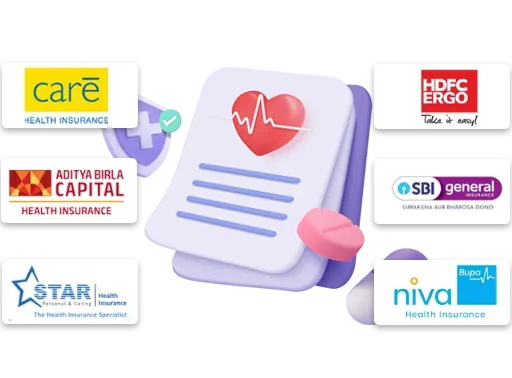
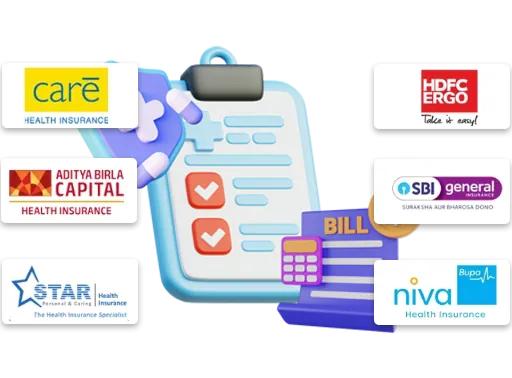
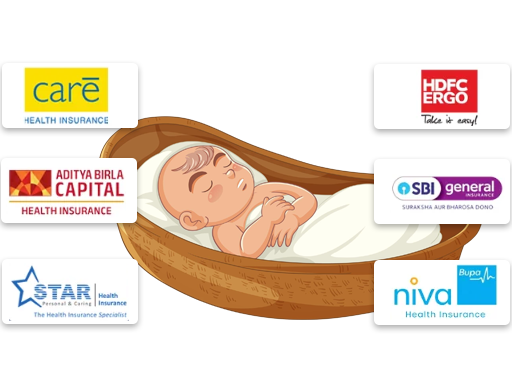
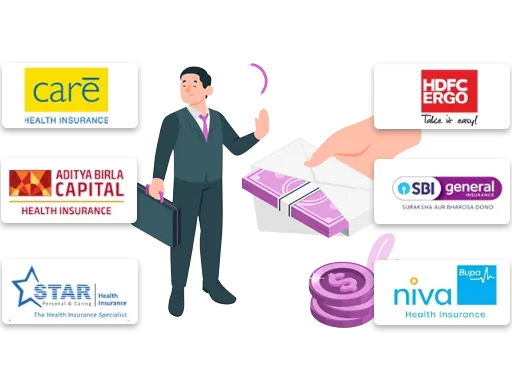
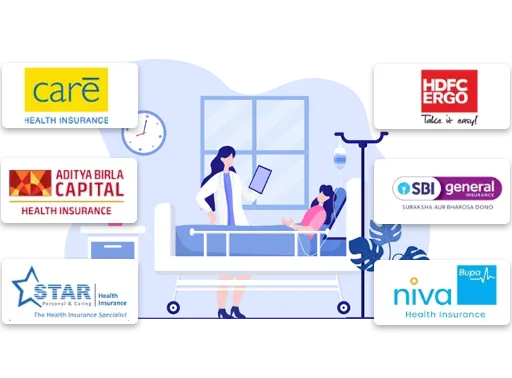
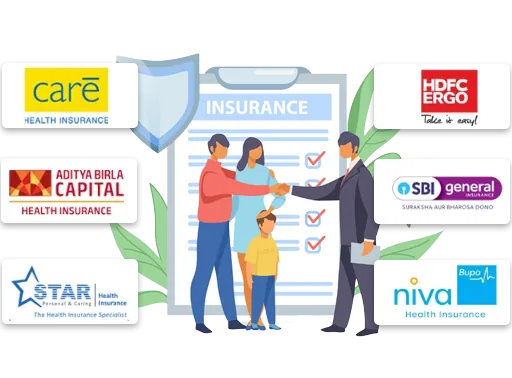

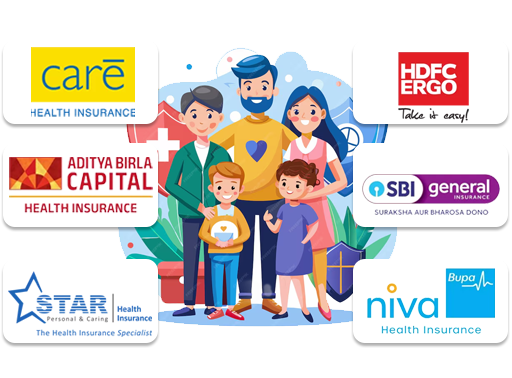
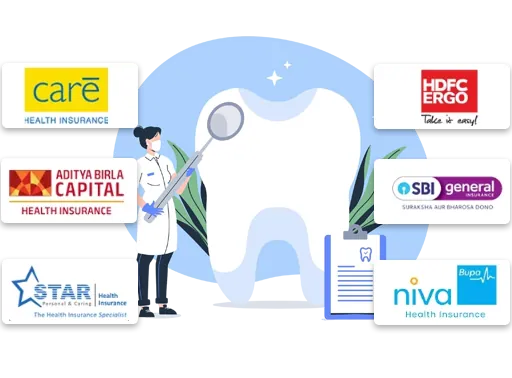

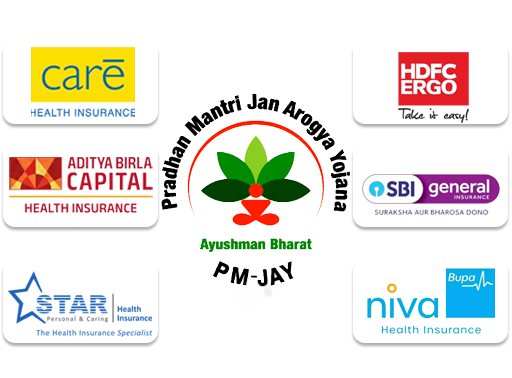
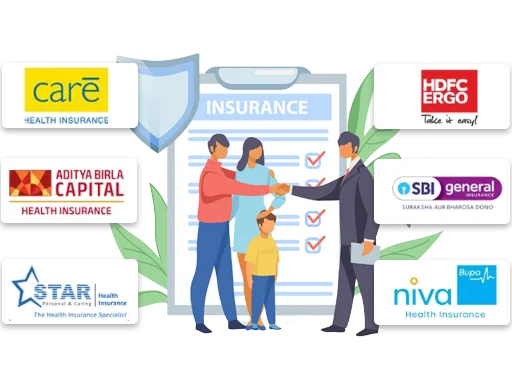




Do you have any thoughts you’d like to share?